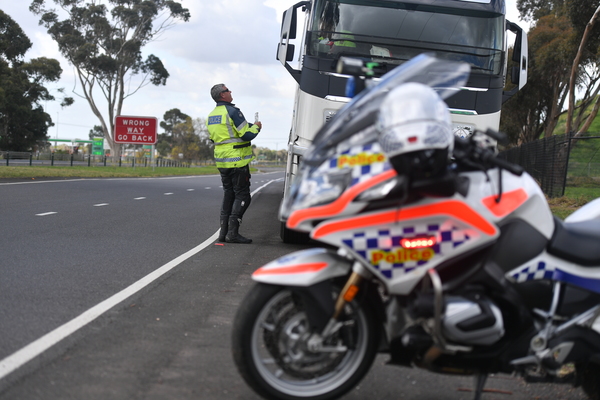
Tate Papworth
There may be fewer cars on the road, but it hasn’t translated to drivers taking fewer risks, the Australian Road Safety Foundation (ARSF) has revealed.
One third of drivers have admitted to taking increased road risks since the implementation of COVID-19 lockdowns, according to ARSF research into regional driver behaviour.
ARSF believes the risk-taking is likely driven by the fact that half of the surveyed drivers believe the roads are safer under current conditions.
According to the research, speeding is already the most common road rule broken, with three quarters of the drivers admitting to being heavy-footed.
Under COVID-19 lockdown conditions, speeding offences have increased by 18 per cent.
Brimbank Highway Patrol Sergeant Bill Joannidis said while less cars on the road meant less offenders, it had also resulted in a spike in excessive speeding.
“The main thing we’ve seen is when traffic is very low and the freeways are nice and clear, particularly in what is normally peak hour, people are going incredibly quick,“ Sergeant Joannidis said.
“We’ve had a number of impounds and very high speeds detected.“
According to the ARSF, other risks being taken during lockdown include using a mobile phone while driving (14 per cent higher), running a stop sign (six per cent higher).
ARSF founder Russell White warned there is never an excuse to be taking risks on or around the roads.
“Sadly, with fewer cars on the roads during coronavirus, we’re seeing an increase in bad driver behaviour, which is unacceptable,” Mr White said.
“Claims research from Suncorp Insurance between 2015 and 2019 shows that approximately 30 per cent of accidents occur in the driver’s own postcode, proving that even a short trip to the shops can be disastrous.
“For every road death, another 35 Australians are hospitalised.“
The research also revealed that only two per cent of the surveyed drivers think about the safety of other road users when behind the wheel.
In addition, more than three quarters of regional Victorian drivers admit to breaking a road law, with the most common excuses including not paying attention (39 per cent), a brief lapse in judgement (35 per cent), or simply believing it was ‘safe’ to do so (20 per cent).
While it is expected that the road toll would reflect the minimal vehicles on the road, the national year-to-date road toll has only declined by 12.5 per cent compared to the same period last year.







